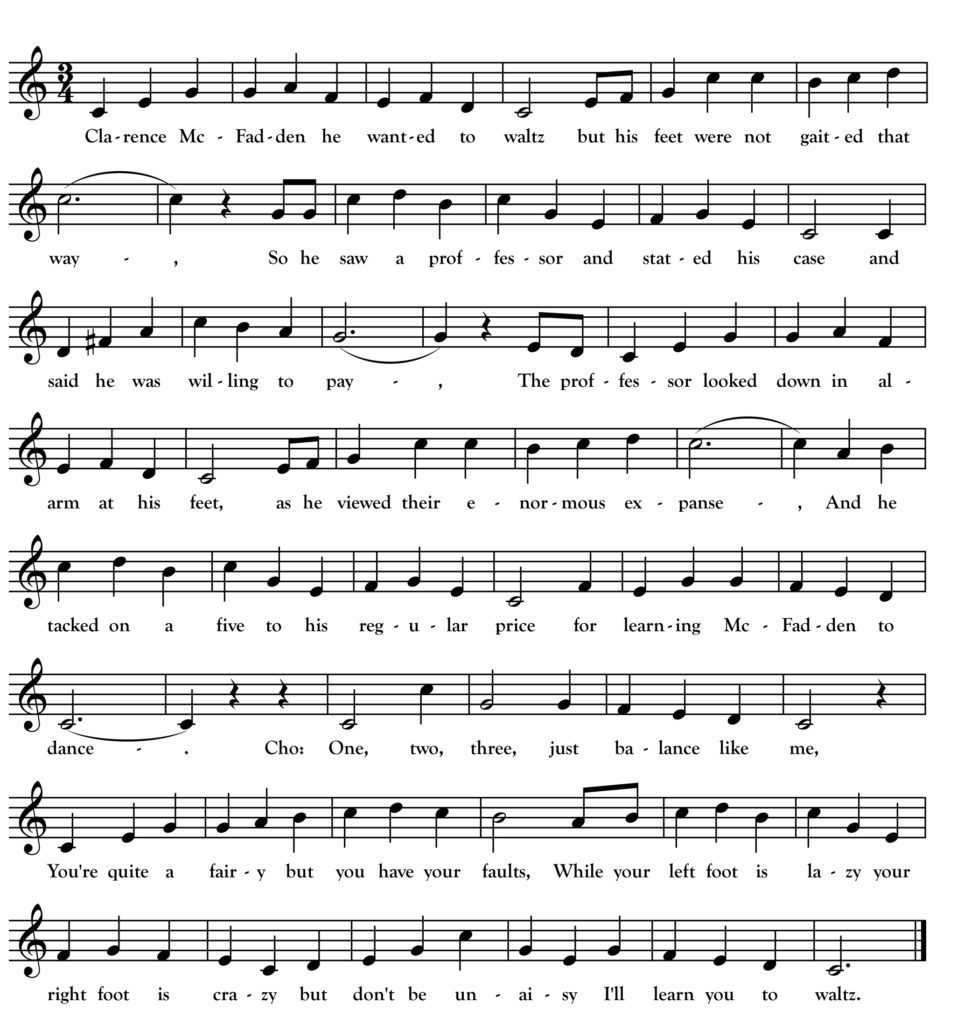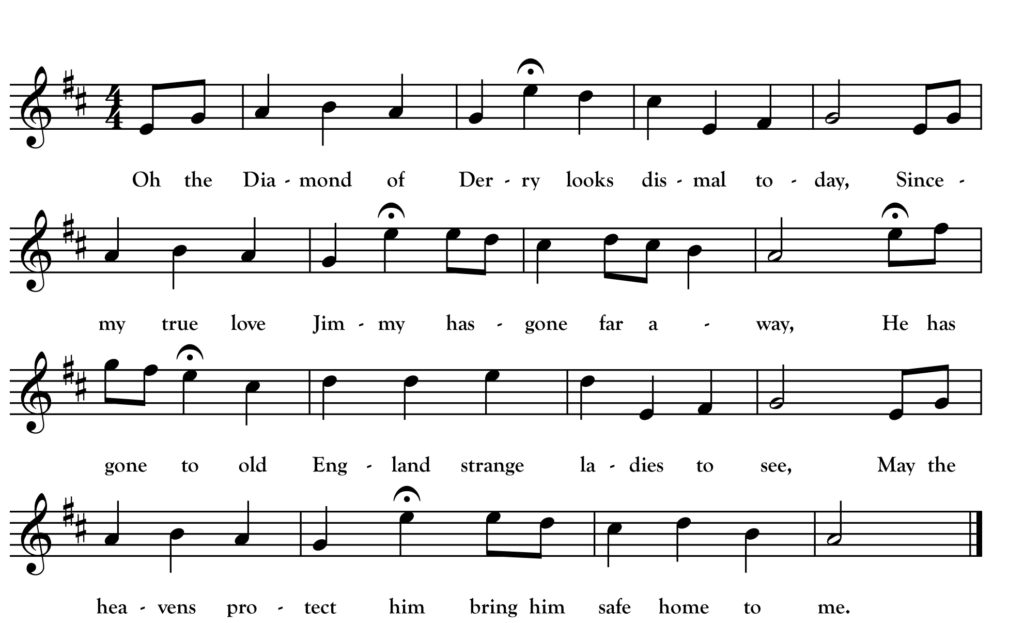Learning McFadden to Waltz

Clarence McFadden he wanted to waltz,
But his feet were not gaited that way,
So he saw a professor and stated his case,
And said he was willing to pay;
The professor looked down in alarm at his feet,
And he viewed their enormous expanse,
So he tucked on a five to his regular price,
For learning McFadden to dance.
One, two, three, just balance like me,
You’re quite a fairy, but you have your faults,
While your left foot is lazy, your right foot is crazy,
Now don’t be unaisy, I’ll learn you to waltz.
He took out McFadden before the whole class,
And he showed him the step once or twice,
But McFadden’s two feet they got tied in a knot,
Sure he thought he was standing on ice;
At last he got loose and struck out with a will,
Never looking behind or before,
But his head got so dizzy, he fell on his face,
And chewed all the wax off the floor.
When Clarence had practiced the step for awhile,
Sure, he thought he had got it down fine,
He went to a girl and asked her to dance,
And he wheeled her out into line;
He walked on her feet and he fractured her toes,
And vowed that her movements were false,
Poor girl went around for two weeks on a crutch,
For learning McFadden to waltz.
McFadden soon got the step into his head,
But it would not go into his feet,
He hummed “Maggie Murphy” from morning to night,
And he counted his steps on the street;
One night he went home to his room to retire,
After painting the town a bright red,
He dreamed he was waltzing and let out his leg,
And kicked the footboards off the bed.
Song collector Margaret MacArthur extended the amazing work of Helen Flanders with her collecting work in Vermont in the 1960s. I came upon this Irish music hall gem in amongst the digitized MacArthur recordings available through the Vermont Folklife Center. She recorded it from Winfred Landman of Brattleboro in 1963. Another more complete version (without its melody) appears in Ballads and Songs of Southern Michigan from the singing of Mrs. John Lambertson of Belding, Michigan just northeast of Grand Rapids who sang it for collectors Gardner and Chickering in 1931.
The earliest printing of the music hall original from 1890 lists M.F. Carey as its composer and is viewable online through the New York Public Library digital collection. In addition to entering into folk tradition, the song was recorded by several artists and was even sung by child star Shirley Temple in the 1939 film Susannah and the Mounties as she tries to teach a mountie to dance with a book balanced on his head!
My transcription above is a blend of the Lambertson text, the original song sheet and a rousing recording of Irish entertainer Patrick Kavanagh (no relation to the author?) who recorded it on a 78rpm record in the 30s.


